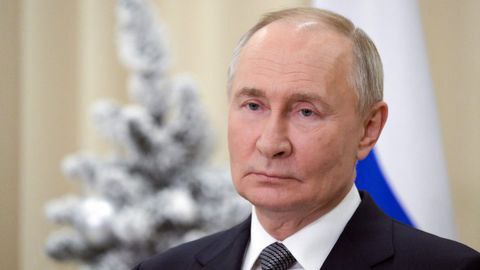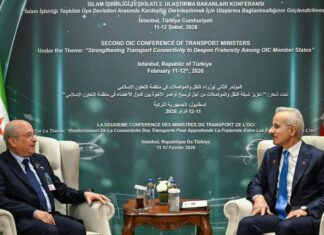
As Syria’s new government enters a new phase following the ouster of longtime ruler Bashar al-Assad, Russia is moving quickly to maintain its strategic foothold in the country, blending energy diplomacy, military pragmatism, and cautious political engagement.
Assad ‘Off the Table’
Russia’s Deputy Foreign Minister Sergei Vershinin met with UN Special Envoy for Syria Geir Pedersen last week, emphasizing Moscow’s support for a political transition that ensures Syria’s sovereignty and territorial integrity. The Russian Foreign Ministry, in a statement released on Friday, said the talks focused on providing international support to Pedersen’s efforts to stabilize the region.
But Russia’s approach is being shaped as much by necessity as by diplomacy. Following Assad’s defeat by revolutionary forces in December 2024, Moscow lost its key political ally in Syria. Assad, now residing in Moscow under tight restrictions, is barred from political or media activity, according to Russia’s ambassador to Iraq. His extradition is reportedly not on the table.
“Giving him up would tarnish Putin’s authority,” a Russian diplomat told The Moscow Times, reflecting the internal tension between strategic necessity and public image.
Energy Diplomacy
While the Kremlin has refrained from recognizing the new Syrian leadership publicly, it has begun quiet cooperation. Oil and gas shipments from Russia resumed in February under President Vladimir Putin’s direct orders. A series of sanctioned tankers — including the Sakina, Aquatica, and Prosperity — delivered more than 230,000 tons of oil and diesel to Syrian ports in March, according to online ship watchers and Reuters.
These deliveries are aimed at alleviating Syria’s crippling fuel crisis, which began when Iranian shipments halted after Assad’s fall. Despite sanctions, Russia has moved quickly to fill that vacuum, securing goodwill and leverage with Syria’s new government led by President Ahmad al-Sharaa.
Military Bases at the Heart of Negotiations
Putin sent a message to al-Sharaa expressing support for Syrian unity and promising “practical cooperation,” according to Kremlin spokesman Dmitry Peskov. Russia also resumed shipments of Syrian banknotes and has offered infrastructure and humanitarian assistance in exchange for continued access to its military bases.
Discussions in Moscow suggest Russia may downsize its military footprint, possibly retaining only its Tartus naval base while negotiating terms for its presence at Hmeimim airbase. For Russia, the goal now is to remain indispensable without provoking further backlash. “What Russia can offer in return — that remains an open question,” Middle East expert Ruslan Suleymanov told The Moscow Times.
Despite the upheaval, Moscow appears determined to hold its ground, betting that fuel, diplomacy, and realpolitik will keep it relevant in a post-Assad Syria.








